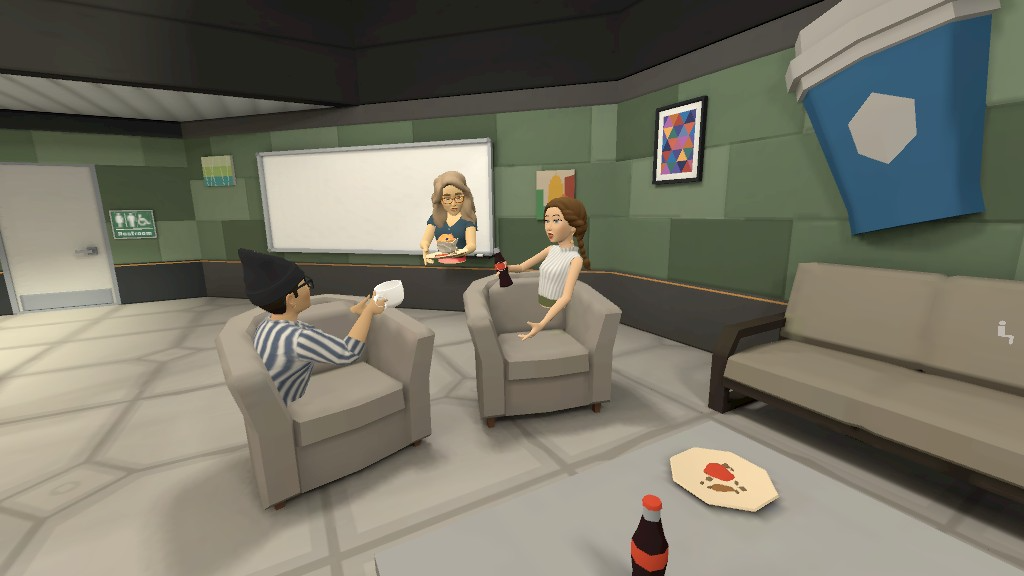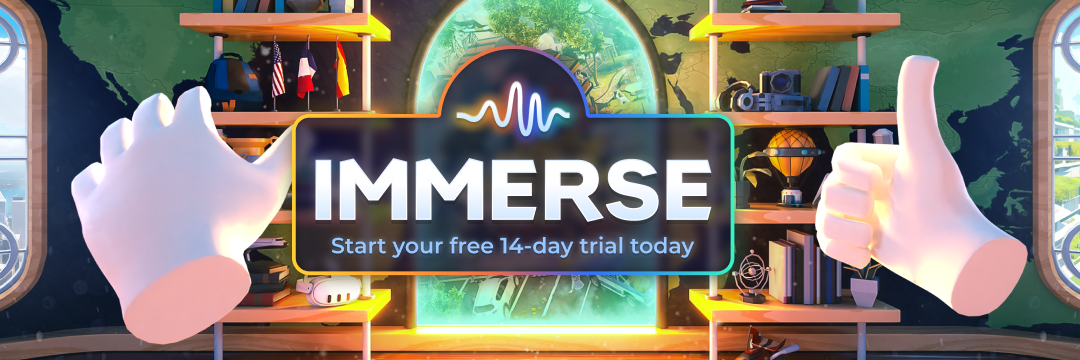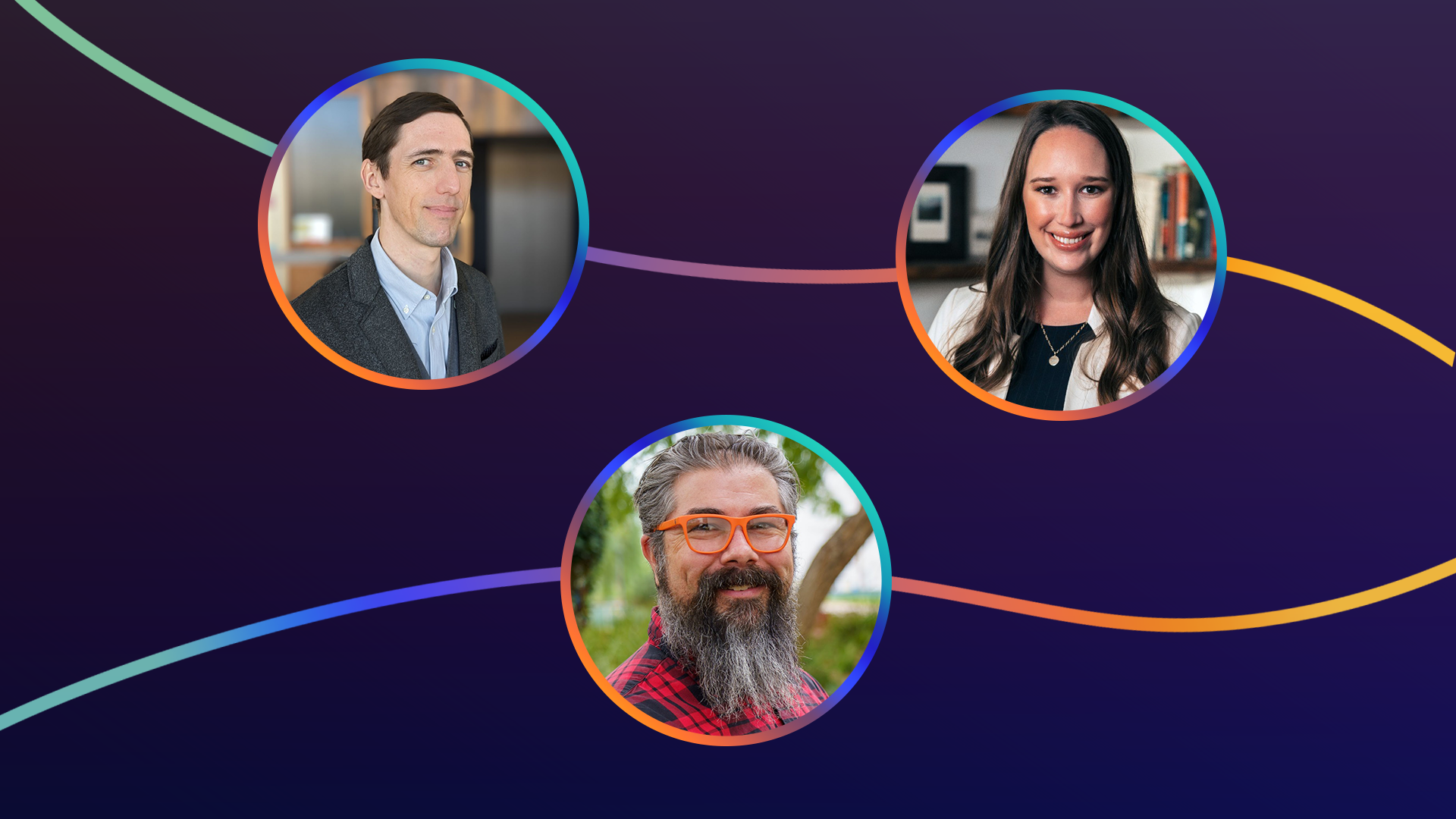Immerse insights:
- Recent research shows using Immerse significantly improves vocabulary learning.
- In Immerse, foreign-language learners pick up new words faster, understand them better, and remember them longer.
- Learners acquire new vocabulary twice as fast in VR language lessons.
Language learners have traditionally used flashcards, lists or similar memorization tools to learn new vocabulary. Yet simply memorizing words in the absence of any context is not the best way to master new vocabulary.
Evidence has been growing for years that encountering vocabulary in VR, where words can be experienced in natural contexts, leads to better understanding, faster learning and increased retention.

What’s more, the learning benefits are strong whether you choose a headset like the Oculus 2 or just enter VR through your computer desktop.
Now, thanks to the most recent studies, we know that foreign-language learners using Immerse pick up new words faster, understand them better, and remember them longer.
What does the actual research say?
Immerse partners with researchers around the world to study the effectiveness of our language platform and make sure we stay up to date with the latest discoveries on immersive language learning.
Several recent studies have confirmed that Immerse is the optimal way to learn - and remember - new vocabulary. Here’s what the research discovered:
Vocabulary learning was more effective in Immerse
A team of researchers from the University of North Texas, the University of Illinois at Urbana-Champaign, and the University of California at Santa Barbara have partnered to study how Immerse impacts the language learning outcomes of high school students learning French.
Preliminary results of this ongoing, large-scale study show that the students learned new vocabulary significantly better through Immerse than through traditional classroom methods.

In fact, the more they interacted with objects in Immerse’s highly interactive scenes, the better they learned.
Moreover, students and teachers agreed that learning in Immerse is enjoyable, immersive, and effective.
Learners remembered vocabulary longer when they learned in Immerse
A longitudinal study conducted at Kanda University of International Studies in Japan analyzed the perspectives of teachers and learners using Immerse to learn English.
Student participants reported that learning new vocabulary in Immerse helped them better remember the words over time.
Language learners used more advanced vocabulary inside Immerse
Researchers from the University of Illinois at Urbana-Champaign and the Universitat Autònoma in Barcelona observed the differences between Spanish middle schoolers learning English in Immerse and in a typical classroom setting.
Although the learners were beginners, they were observed using intermediate-level English vocabulary while in Immerse, vocabulary that they had picked up simply from interacting naturally with their teacher in the platform.
Later on in the classroom, however, the learners went back to using only beginner-level vocabulary.
Why is Immerse so much more effective for vocabulary learning?
Immerse has over 40 scenes where learners can have the kind of interactions people really use language for in daily life. Telling a doctor about your symptoms, ordering in a coffee shop, showing your houseguests where the bathroom is - the possibilities are unlimited because every experience inside Immerse is fresh and new.
And interacting with the objects and people in the scene lets you pick up vocabulary the way your brain does it best - through experience.
Learning in Immerse, whether through a VR headset or a desktop, has already helped many learners speak Spanish, English, and French with more confidence. There’s simply no better way to learn.

Research sources:
Bonner, E., Lege, R., & Frazier, E. (2023). Teaching CLIL Courses Entirely in Virtual Reality: Educator Experiences. CALICO Journal, 40(1), 45–67. https://doi.org/10.1558/cj.22676
Dooly, M., Thrasher, T., & Sadler, R. (2023). “Whoa! Incredible!:” Language Learning Experiences in Virtual Reality. RELC Journal. https://doi.org/10.1177/00336882231167610
Exploring the Cognitive and Affective Aspects of Language Learning in High-Immersion Virtual Reality: Pilot Study [EUROCALL Conference, 2023]

Tricia Thrasher

Miranda Novash






.png)




